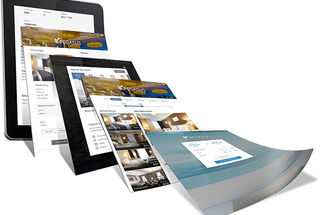The Future of the Hotel Internet Booking Engine

Expedia launched October 22, 1996 as a division of Microsoft. It was in that decade the Internet Booking Engine (IBE) was born. It took hold of the travel industry, dominating the space ever since. A plethora of booking engines was developed during that time. Some did well, and some did not. The one constant was the unending pursuit of perfection in creating a booking experience that met not only the needs of the industry—but also the needs of the guest.
The IBE was initially developed for use on a desktop computer since the 90's pre-dated mobile devices. A great deal has changed since then, including guest buying habits. Now today's booking engines need to be effective on any device a traveler owns. And travelers, like most consumers, exhibit a non-linear purchase path. This requires the IBE user experience be as responsive, flexible, and frictionless as possible.
So, what is the future of the IBE?
According to the Phocuswright study The State of Digital Travel 2017, OTAs currently dominate gross mobile bookings in the United States market. In fact, just two OTA companies – Expedia and the Priceline Group – account for the vast majority of bookings. Compare this to the scores of provider brands across the airline, hotel and car rental segments. And in the app space, OTAs are dominating adoption due to brand recognition, ease of use and innovation. There is a need for hoteliers to embrace the direct booking approach but unfortunately, their ad spend budget, along with in-house development, often pales in comparison to the OTA and Metasearch behemoths. But this is about to change.
Today, guests are expecting a much deeper level of personalization. The future of the IBE is all about delivering exactly what the guest requires and wants during the booking process no matter what device they use or how they use it. There are some very rudimentary aspects of a booking engine that they all require. The capability to deliver results based on direct input from the guest like location, dates of stay, room type, and such - but there is so much more to be done.
Machine learning within a guest's buying path will inevitably change the way the IBE works. It will power the relevant results for the guest during the decision-making journey and make the booking much easier, ultimately leading to increased conversion rates. Some may question the viability of machine learning or artificial intelligence (AI), but in reality, it is the obvious evolution of the IBE. There is so much data available that utilizing this information will deliver the most intuitive experience. The mining of data along with the development of specific deep learning algorithms will enable hoteliers to not only enhance the booking process but also make it feel uniquely personalized. This is the ultimate in guest service.
So much can now be accomplished using data, not only in delivering precisely what the guest wants and requires - but also in enhancing their stay. Within the booking flow, complementary products and services can be offered based on other preferences like the type of room the guest likes, whether they prefer a high floor or low floor, whether they consistently request late check-out, and so on.
However, imagine if the booking process could also anticipate and recommend things that the guest doesn't yet realize they want? This could include restaurant recommendations within walking distance of the hotel based on the guest's social profile, or in-room music tailored to the guest's public likes. The opportunities are endless, and the technology is available.
The introduction of machine learning and its complimentary cousin, artificial intelligence, will not only help the booking experience but also amplify the guest's relationship with the hotel. When it comes to loyalty, making the booking experience easy and then utilizing the data effectively can build greater loyalty to an individual hotel or a brand than any formalized loyalty program. The future is incredibly bright for the IBE, and it will remain the most integral part of your online distribution strategy.
About Pegasus
Pegasus combines high-tech innovation with high-touch service to give hoteliers more control over their revenue and distribution strategy than ever before. Following their merger with Travel Tripper, Pegasus enables hoteliers to better connect with their guests through an innovative and flexible platform of Reservations, E-commerce, Global Sales, and Business Intelligence solutions that help hotels drive demand and increase revenue and profitability, including the Pegasus CRS, named Best CRS 2022 by Hotel Tech Report. With more than 30 years of experience in global distribution, Pegasus serves hotels across 120 countries from eight offices worldwide in New York, Scottsdale, Las Vegas, London, Paris, Frankfurt, Tokyo, and Hyderabad. For more information, visit www.pegs.com.
Megan Munson
Marketing
1-480-624-6672
Pegasus